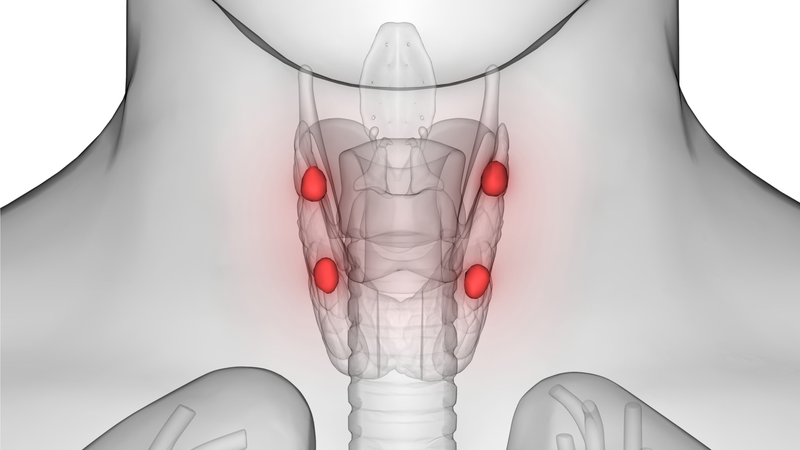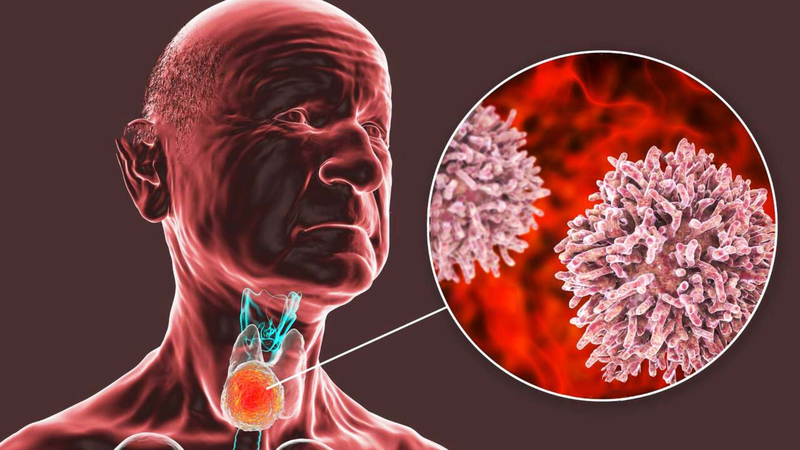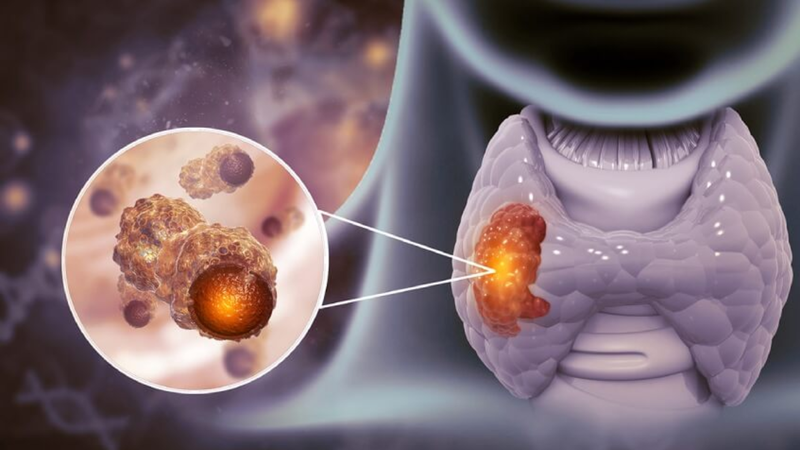Parathyroid cancer is a rare disease and often seriously affects human health. Currently, the cause of this disease has not been determined and is difficult to screen. So how to understand parathyroid cancer and treatment methods? Refer to the article below!
What is parathyroid cancer?
The parathyroid gland is one of the body’s endocrine glands. It consists of 4 small oval-shaped glands, located near the thyroid gland. The function of this gland is to secrete the hormone PTH, which regulates calcium levels in the blood, helps strengthen bones and joints, and ensures normal muscle and nerve function.
Parathyroid cancer is a disease that occurs when parathyroid cells proliferate uncontrollably. These cells form malignant tumors and have the potential to metastasize dangerously. Parathyroid cancer usually develops in one of the four parathyroid glands.
According to research, doctors believe that people with genetic factors from relatives with hyperparathyroidism or multiple endocrine neoplasia syndrome may have a high risk of developing parathyroid cancer. Or patients with a history of radiation therapy in the head and neck area are also considered to be at high risk of developing parathyroid cancer.
This is one of the rare and uncommon diseases, so few people know about it, leading to subjectivity. It is estimated that in the US, there are less than 100 new cases each year. It is usually diagnosed in patients over 30 years old. The survival rate of parathyroid cancer is estimated at 88% survival rate over 5 years and 49% survival rate over 10 years.

Parathyroid cancer is a rare disease.
Symptoms of parathyroid cancer
The parathyroid gland plays a role in regulating the amount of calcium in the blood. Therefore, symptoms of this type of cancer are often detected when there are signs of hypercalcemia syndrome. Symptoms are described as:
- Feeling tired, exhausted;
- Feeling nauseous, vomiting a lot;
- Loss of appetite;
- Unexplained weight loss;
- Constipation, frequent urination;
- Signs of stomach ulcers leading to persistent abdominal pain;
- Frequent bone and joint pain, brittle bones, easy to break;
- Lumps in the neck, difficulty swallowing, difficulty communicating.

Pay Attention to Parathyroid Cancer Symptoms
Diagnosis of parathyroid cancer
When there are abnormal signs in the body, you need to visit a medical facility to be diagnosed with the risk of parathyroid cancer.
Common methods to accurately diagnose parathyroid cancer are often prescribed by doctors such as:
- Clinical examination: The doctor will examine general health signs. Check for diseases and clinical symptoms to narrow down the diagnosis.
- Blood and urine tests: Tests are performed to help check hormone levels and thyroid activity.
- Imaging diagnosis: Images of the tumor are observed, diagnosing the location, size, density and level of invasion of the tumor. This method can be performed by X-ray, CT scan, ultrasound, MRI, etc.
- Biopsy: This is a diagnostic method by taking cells from the tumor area and then testing to detect cancer cells.

Biopsy test supports cancer diagnosis
Parathyroid Cancer Treatment
Depending on the health status and progression of the disease, the patient will be given the most appropriate treatment regimen by specialists. Patients may be prescribed treatment with one or a combination of different methods. Some current treatments for parathyroid cancer are:
Treatment of hypercalcemia
Parathyroid tumors lead to life-threatening hypercalcemia. Treatment of hypercalcemia should be performed from the beginning before other methods such as surgery or radiotherapy are performed.
Some drugs prescribed to treat hypercalcemia include calcitonin, biphosphonate, gallium nitrate, etc.
Surgery
It can be said that surgery is the most common treatment for parathyroid cancer. Patients have their parathyroid glands and tumors and metastases removed. The procedure is performed by doctors with an incision in the neck as a minimally invasive procedure using a fiberoptic scope.
Performing surgery for parathyroid cancer carries the risk of damaging the nerves in the throat. This can lead to a change in the patient’s voice due to difficulty speaking.
Chemotherapy
Chemotherapy is a modern medical method that uses drugs to stop the growth of cancer cells. It helps kill cells or stop the growth of cells. Systemic chemotherapy is given to the patient by mouth or by injection into a vein or muscle. The drugs then enter the bloodstream and reach the parathyroid cancer cells.
Chemotherapy can cause some unwanted effects in the body. However, chemotherapy is still used to treat metastatic cancer. The most effective drug for parathyroid cancer has not yet been found because it is a very rare disease.
Radiotherapy
Radiotherapy is used when the patient cannot undergo surgery to remove the tumor. It is also combined after surgery to completely eliminate remaining cancer cells. Currently, medical organizations have not yet had any specific studies evaluating the risks of radiotherapy for this disease.

Treatment of parathyroid cancer should be done promptly.
Supportive treatment
Supportive treatment is considered necessary for cancer patients. It helps improve the patient’s quality of life by alleviating cancer symptoms and improving the patient’s physical condition.
This measure includes:
- Using medication according to the regimen of a specialist.
- Building a reasonable lifestyle and exercise regimen.
- Supporting a positive impact on the patient’s psychology.
- Establishing a scientific nutritional regimen.
- Combining a number of other treatment methods such as: Oriental medicine, traditional medicine, health protection functional foods, etc.
In the above article, we have provided you with detailed information to help you better understand parathyroid cancer. Hopefully it will be useful and help you prevent this disease!





